Each summer, students from SGPIA spread out across the world as part of the International Field Program (IFP) and Studio Programs! Students conduct independent research, contribute to the vital work of local non-profits, NGOs, and government agencies, and gain invaluable international experience. This summer, our students are living, working, and learning in Argentina, the Balkans, Colombia, Cuba, Ethiopia, and South Africa. The IFP and Studio Correspondents will be the eyes and ears in the field to help us tell the stories of the summer. Check back to learn about each of the field sites.
I pose this question to spark some critical thought. In GPIA we presume to be critical thinkers, academics, and practitioners, and if you are familiar with working in non-profits, economic development, and international institutions, then perhaps you have become weary of terms such as “empowerment”. What does it mean? How do we get there? Who gets to choose who deserves to be empowered? How do we know when we see it?
Other words that I have come across, that we as practitioners need to be explicit in defining, include “scaling up”, “sustainability”, and “participation”. So, as Megan and I facilitate our workshops with the mujeres cafeteras (women coffee farmers), I have been examining our own terms of reference pertaining to the idea of “participatory empowerment”.
“Much like empowerment, participation is a vague term which has been rendered virtually meaningless by the myriad of actors who have adopted the language to signify very different things. In the promotion of diverging agendas, it is important, then, if we are to understand how empowerment has been used and practised to unmask what participation means and how it is used in specific contexts” (Buckley, 2000, p. 9).
Development work has historically been paternalistic and technocratic. Development has been widely as concerned with capacity building, improving technical knowledge, transplanting expertise from the west to everywhere else. Of course, new models of development have emerged that are “people centered” and employ “human centered design”, and no model is more fashionable at the moment than participatory development and empowerment.
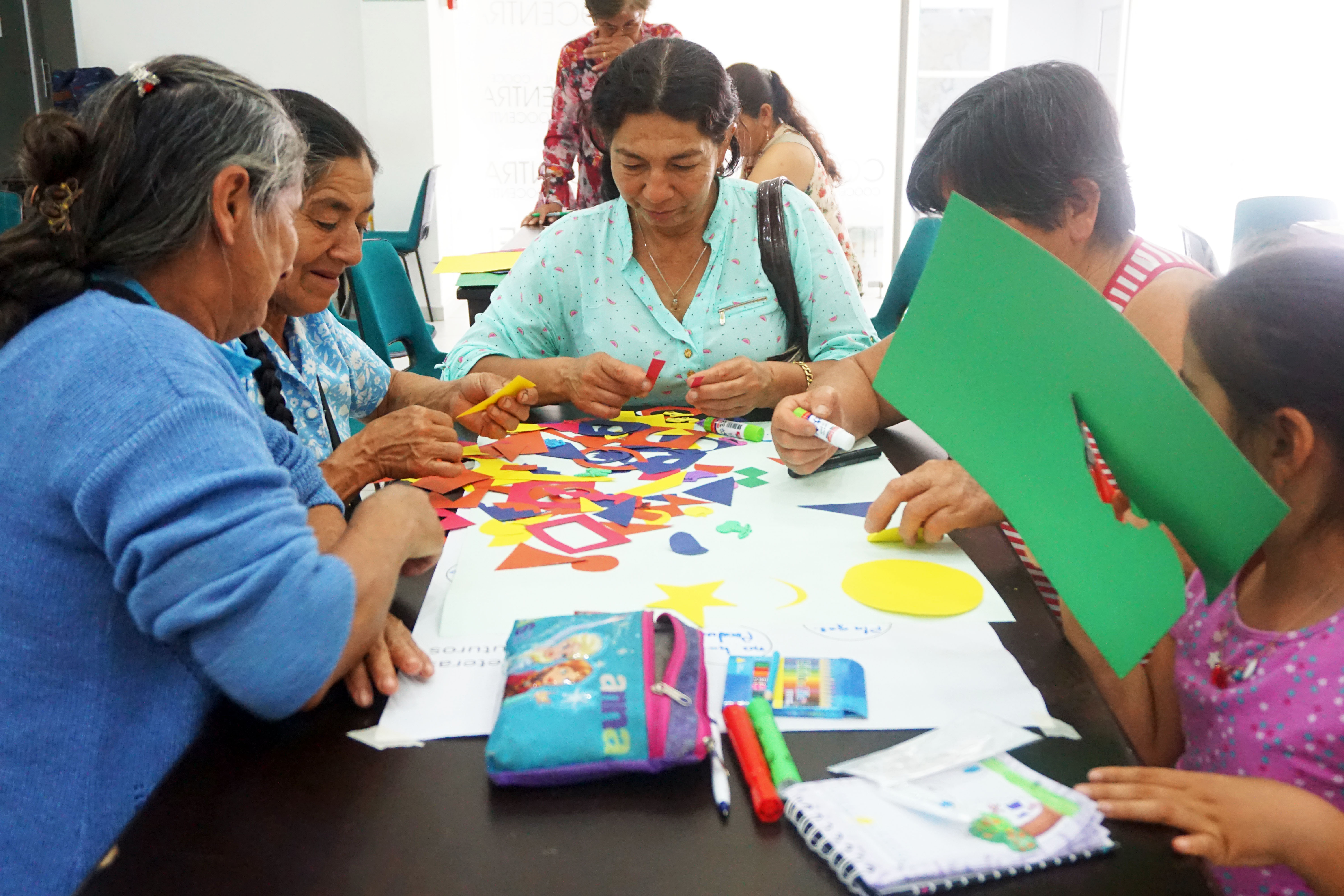
I have landed on the notion that participatory empowerment attempts need to be rooted in a specific process, which can then serve as the point of origin in defining “success”. Because our time here is so short (7 weeks) we cannot honestly expect to see immediate and lasting empowerment outcomes, or that our participants would even closely identify with our own imported notions of what an empowered women should be. And so we have decided to start our process with a space. A space that is relaxed, flexible, and reflective. Which, by the way, starts with how we present ourselves. Our design process attempts to be as equitable as possible about the flow of information about our own lives, as we don’t quite realize how extractive this kind of work can be in this sense. It’s important to provide details of where we come from as we ask many, many questions of where they come from.
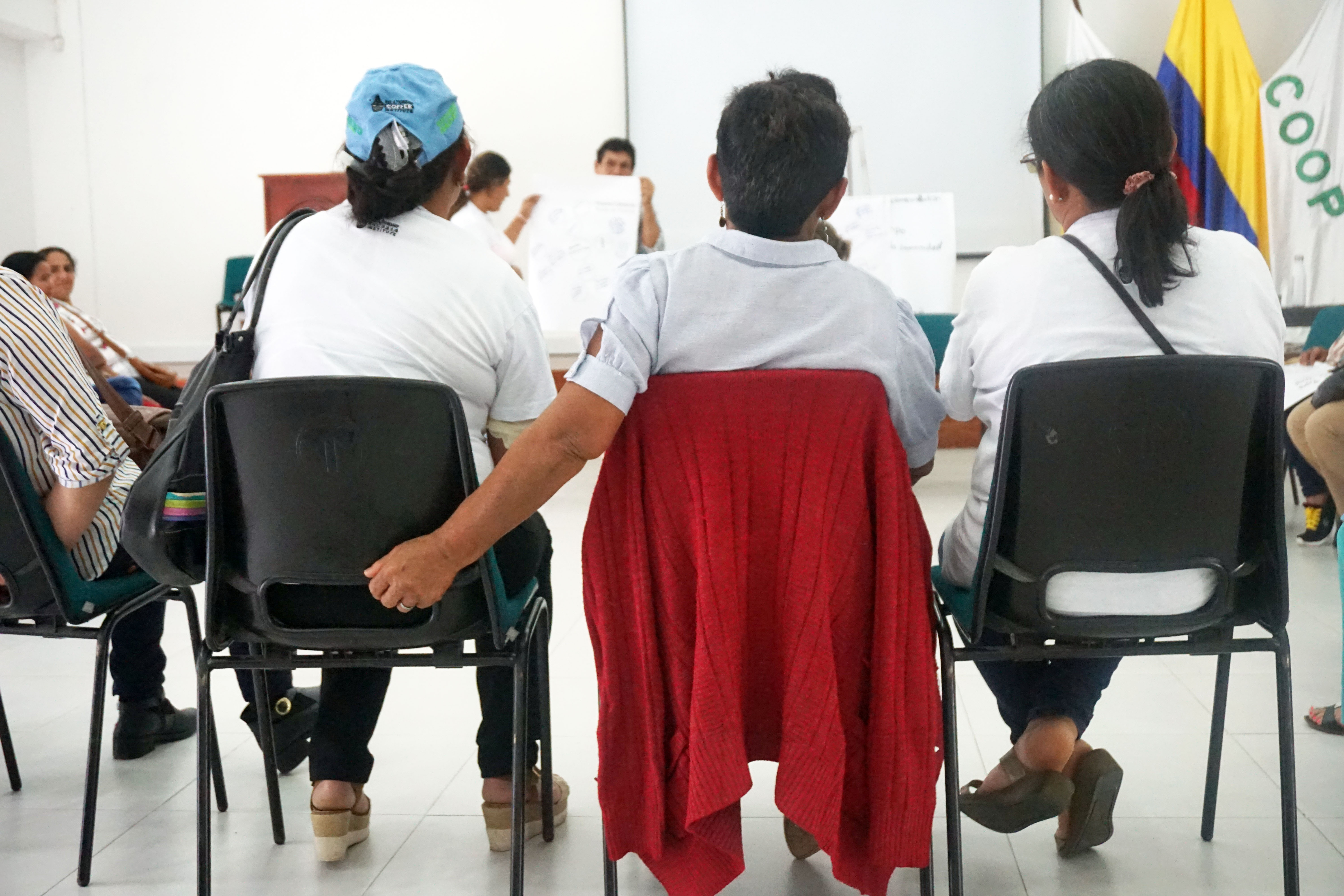
Thus, we start with a space and our process is based on equal exchange. I acknowledge that the fact that we are even being here as foreigners is a product of specific power relations that cannot be erased, but we can still find productivity in this philosophy. Megan is in the MA in Transdisciplinary Design program and brings to the project a breadth of knowledge in creative workshopping. As the mujeres cafeteras cooperative program mostly consists of technical and capacity trainings, we have decided to base our workshops on creative expressions of the future. By establishing a space where free flowing and critical discussions can take place, perhaps future envisionments of coffee growing, gender roles, and the future of Colombia, can open up a path to using agency in changing things that they do have the power over, as well as identifying things they do not.
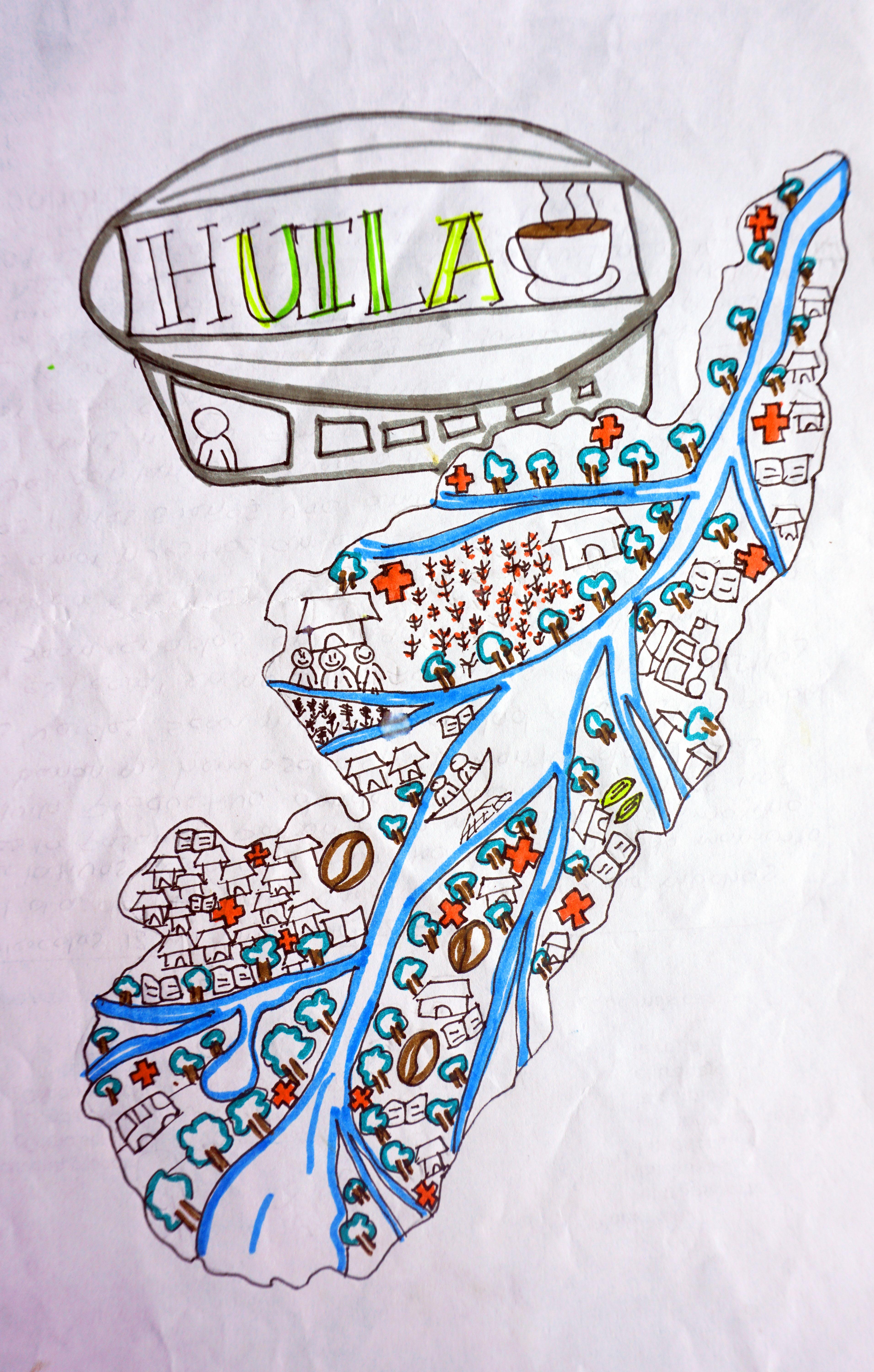
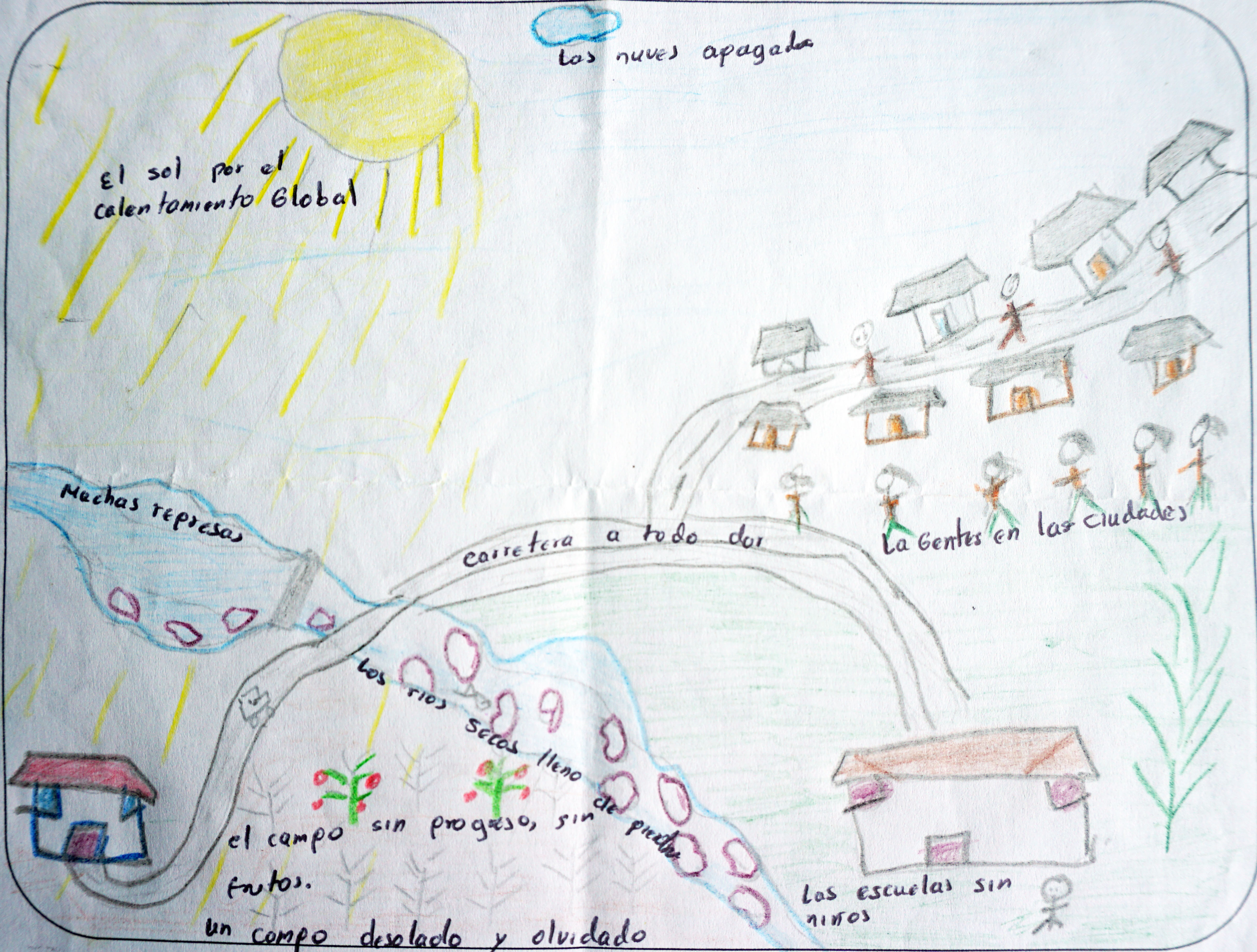
What we have done so far includes showcasing their photos on what is changing in their lives and communities, individual drawings of what Huila, Colombia will look like in 2050, and a “future wheel” activity that involves identifying the consequences of the consequences of specific changes that they have observed and chosen to focus on. Among the most popular themes has been climate change and environmental contamination, new technologies, and changing gender roles that affects the homelife and community values.
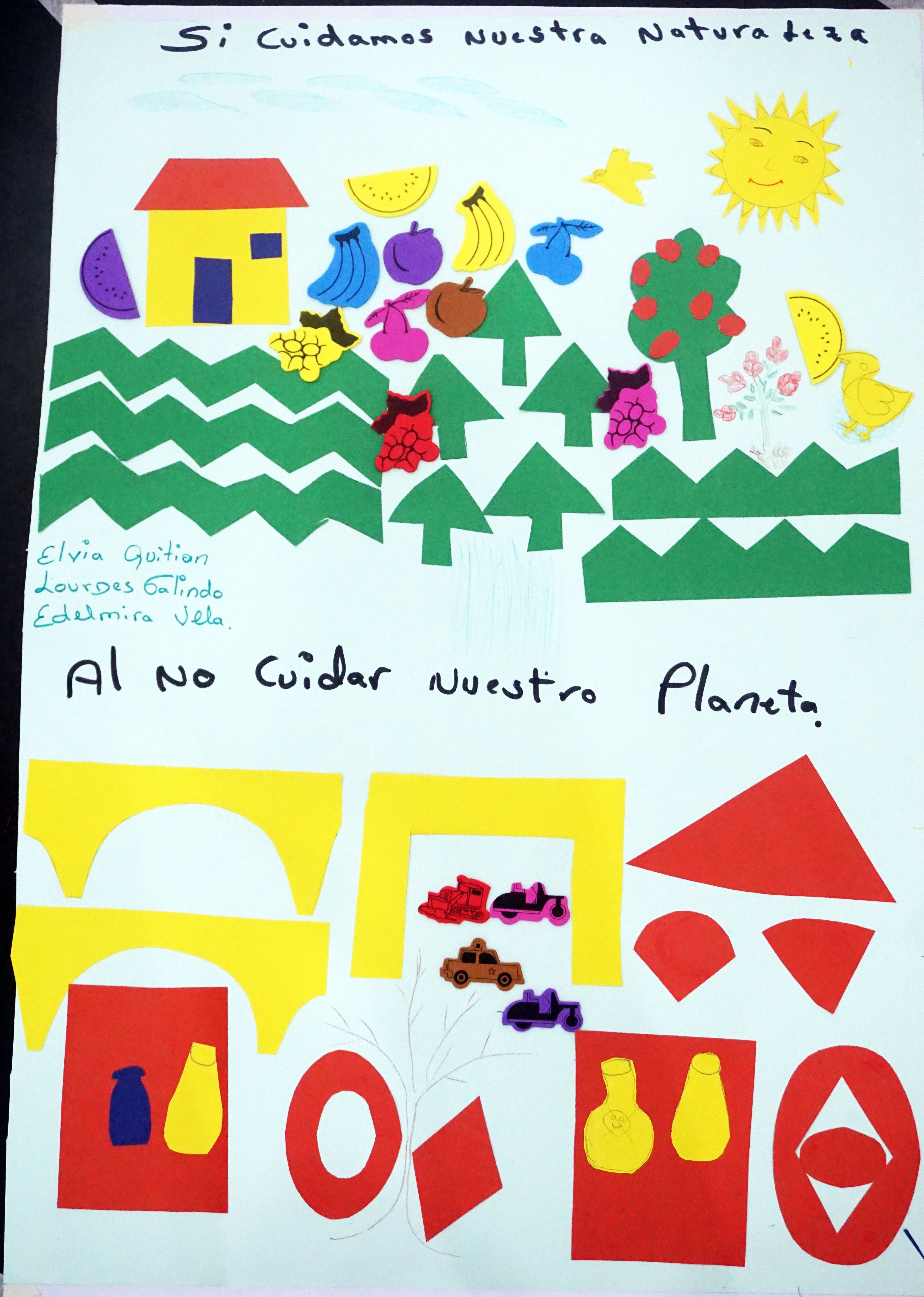

Our last workshop will be a collaborative design challenge to design the woman of the future, and we will end with an exhibition of their work and a cultural event that includes them, their families and friends, and the employees at the Coocentral cooperative. I am not sure whether the outcome of this project will have lasting effects in how our participants perceive their ability to influence aspects of their lives and communities, but what I do know is that we are all having fun.
